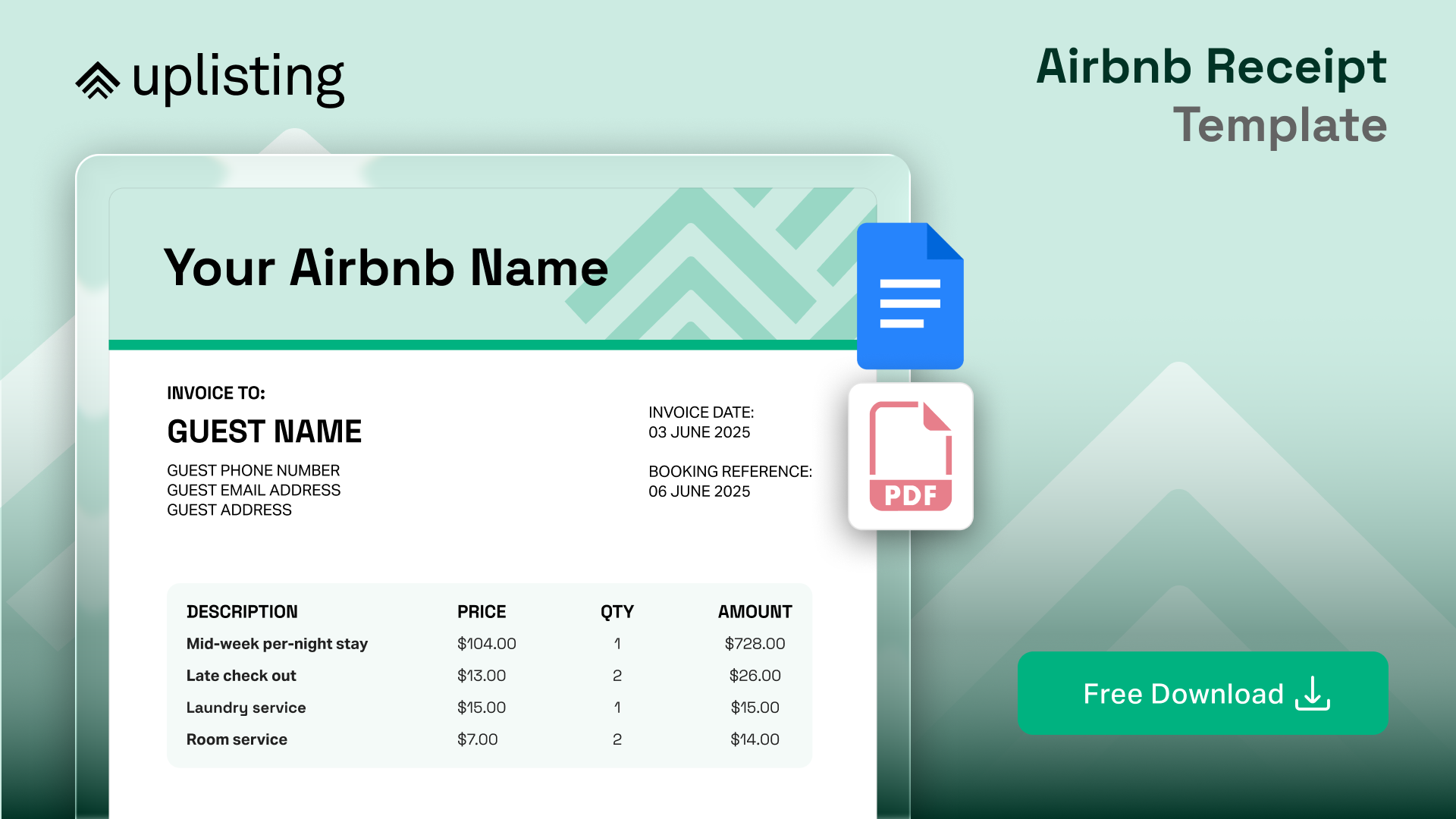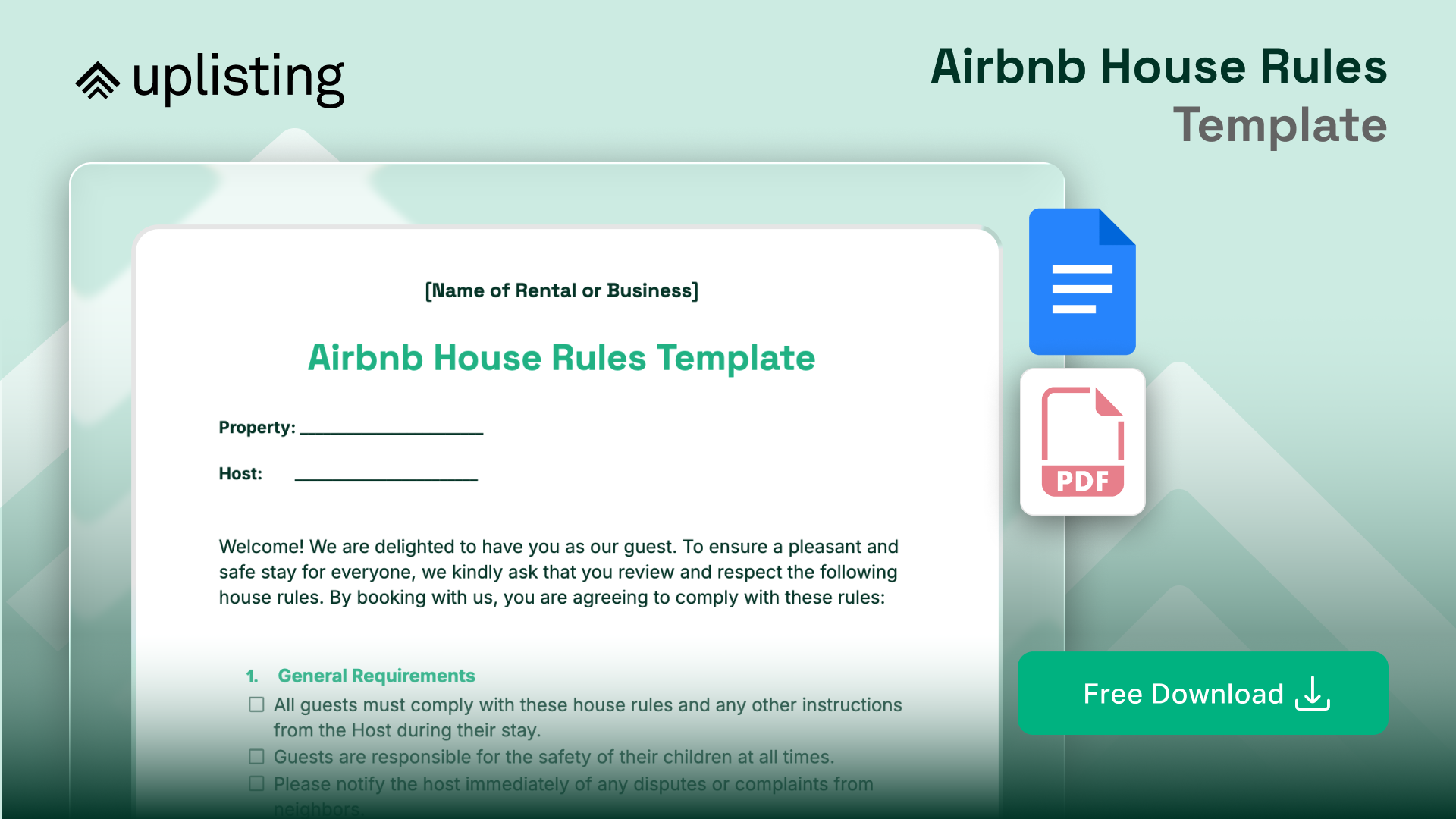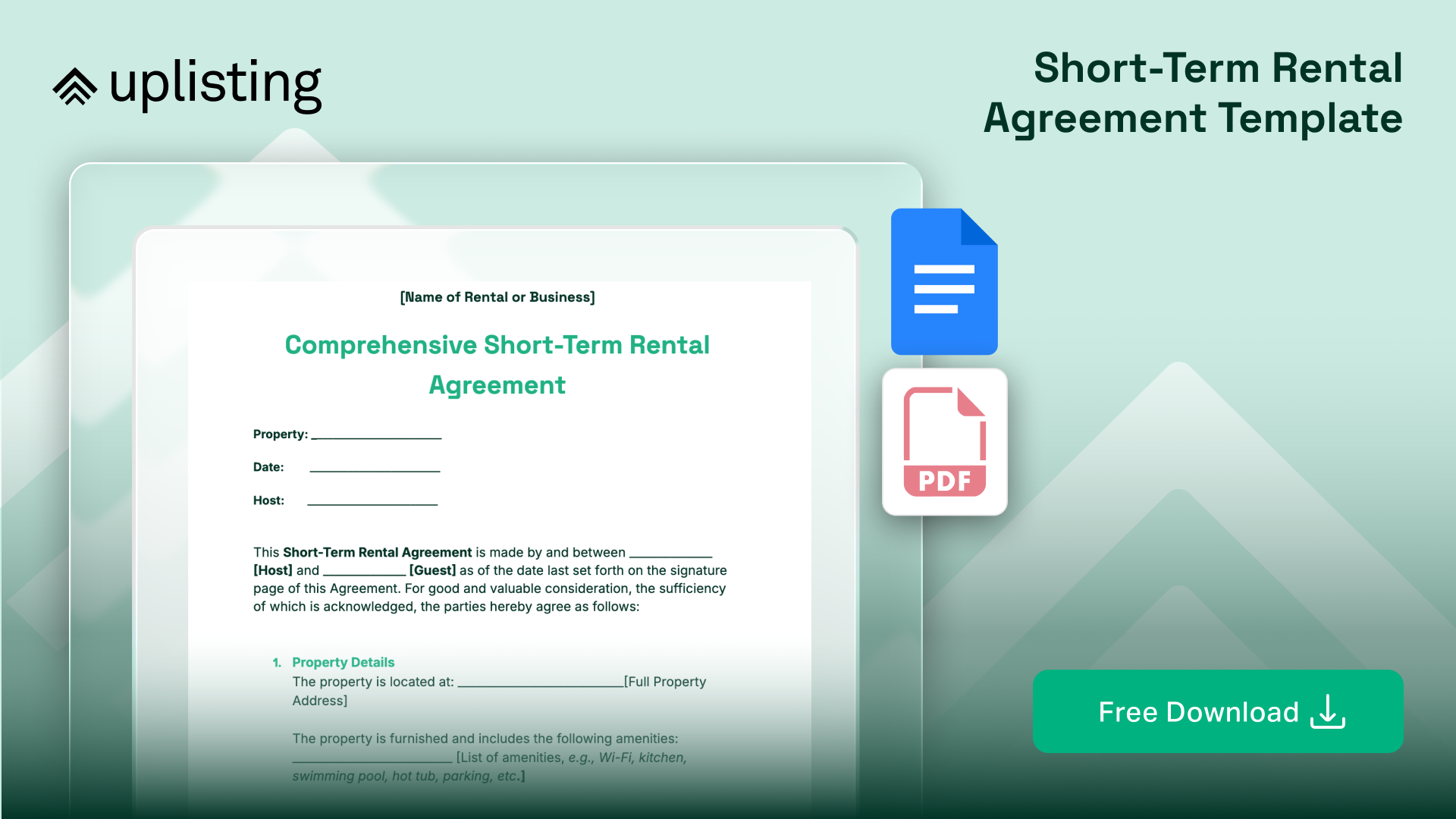Key Takeaways
Standard homeowners insurance usually doesn’t cover short term rentals—specialised coverage is essential
Look for policies that cover guest-caused damage, liability claims and income loss
Platforms like Airbnb offer limited protection but it’s not a substitute for full insurance
Operating multiple short term rentals without proper insurance exposes your entire portfolio to risk. One guest incident—whether it's property damage, injury or loss of income—can trigger costly legal and financial fallout that ripples across your business. Standard homeowners insurance won’t cover commercial use, and relying solely on platform protections like Airbnb’s Host Guarantee leaves critical gaps.
The bottom line? You need short term rental insurance that’s purpose-built for your business model.
That means policies that account for high guest turnover, cover third-party liability and protect your revenue during repairs or cancellations. In 2025, staying competitive also means proving your protection plan to partners, investors and property owners. In this guide, we’re breaking down what matters most in vacation rental insurance so you can scale with confidence.
Why Short Term Rental Insurance Matters
Short term rental insurance exists because standard policies aren’t built for high guest turnover. Most homeowners insurance excludes paid stays, and landlord coverage often stops short when properties operate like hotels instead of long-term leases.
Each guest brings new risk—property damage, missing items, or someone getting hurt on-site. A spilled drink on a rug is frustrating. A guest falling on loose stairs is a lawsuit waiting to happen. Without the right coverage, you're covering repairs and liability yourself.
Managing multiple listings raises the stakes quickly. One uninsured claim can wipe out a month of income, upset owners, and cause major delays with bookings. Policies built for short term rentals often include income loss coverage and liability protection that accounts for things like pools, pets, or shared entryways.
The right insurance keeps operations moving. Repairs happen faster, claims don’t derail payouts, and you don’t need to scramble when a guest issue escalates. Coverage isn’t just a safety net—it’s how you keep your rental business running without disruption.
Enjoy the confidence & focus you need to scale your vacation rental business
Book more while doing less
With a reliable VRM solution you can trust, Uplisting can help you grow your business without wasting time on double bookings, unhappy guests, upset clients and worrying what could go wrong next.
What Airbnb and Vrbo Cover (And What They Don’t)
Airbnb’s AirCover and Vrbo’s Liability Insurance look solid on paper, but they leave plenty of gaps once you get into the details. They're built to offer basic support—not to replace short term rental insurance. When you’re running multiple listings, depending only on platform protections is like assuming a smoke detector will stop the fire.
Platform guarantees don’t cover:
Lost income coverage: When a guest damages the unit and you have to cancel upcoming reservations, there’s no support unless you’ve added income loss protection.
Legal defense: If a guest files a lawsuit over an injury, liability coverage might apply, but lawyers and court fees often aren’t included.
Replacement cost coverage: Reimbursements usually reflect the item’s current value—not what you’ll actually spend to replace it. That creates a shortfall when you need to buy new furniture or appliances during peak season.
Platform protections serve one purpose: to support the marketplace. Running a short term rental business calls for insurance that covers the real risks—from lost bookings to legal claims—without leaving you to fill in the blanks.
Key Features to Look For in Short Term Rental Insurance
In 2025, the best short term rental insurance coverage protects income, handles legal claims, and makes it easier to keep properties up and running—without you footing the bill every time something goes wrong.
Coverage for guest damage and theft
A spilled drink on the rug is annoying. A broken window or stolen sound system is expensive. Good short term rental insurance covers both. Look for policies that account for accidental damage, intentional destruction, and theft—even when there's no forced entry.
Replacement cost coverage matters. You shouldn’t have to settle for a payout based on a depreciated value when replacing a $900 table that was in perfect shape last week. Watch for exclusions around pet damage, smoke, or long-term stains—those often lead to out-of-pocket repairs.
Liability and legal support
Trips, falls, injuries—guests find new ways to get hurt every season. When someone claims negligence or files a lawsuit, liability coverage carries the weight. It should include protection for medical bills, legal defense, and settlement costs.
Legal coverage isn’t just about showing up in court. It also covers attorney fees and ongoing legal support, which makes a huge difference when managing multiple units or acting on behalf of property owners. One claim can affect every listing under your name, so having solid legal protection keeps everything from snowballing.
Loss of income coverage
When a unit goes offline after a fire or flood, you're not just fixing drywall—you’re also missing out on booked nights. Loss of income coverage helps fill the gap between damage and the next guest check-in.
The better policies calculate payouts based on average booking value—not flat rates—so they reflect real earnings, especially during high seasons. Some start coverage within 48 hours of downtime, while others make you wait. Read the fine print and make sure timelines match your operation.
Keep an eye out for clauses covering local shutdowns, too. If city mandates or natural disasters force a rental closure, you’ll want backup that doesn’t rely on physical damage to trigger compensation.

Save yourself from your inbox
Automate with Uplisting
Automated guest messages keep your guest informed from booking through to check-out. They’re designed to answer questions before they arise, saving you time whilst keeping your guests happy.
Comparing Insurance Providers
Insurance isn't just about coverage—it’s about how coverage works when something goes wrong. Some policies are built for owners managing one property on weekends. Others are designed for operators handling six listings, overlapping turnovers, and ongoing guest activity. The gap between those models becomes clear once you start asking the right questions.
What separates one provider from another
Policies often include similar categories—damage protection, liability, income loss—but the details change everything. One provider might include vandalism in guest damage; another might exclude it unless there’s a police report. Language in the fine print decides whether you’re covered or left footing the bill.
Claims handling is where differences really show. Some carriers move fast with digital tools and clear timelines. Others drag out the process with outdated forms, slow adjusters, and vague communication. If a pipe bursts before a holiday weekend, waiting on paperwork isn’t an option.
Some providers require guest screenings or proof of booking through specific platforms. That’s a problem when you're accepting direct reservations or hosting repeat guests. Double-check whether coverage applies across all guest types or only under strict conditions.
Evaluating coverage across multiple properties
Scaling to six or more properties adds complexity. Certain insurers offer bundled policies that cover multiple locations under one agreement. That setup keeps billing simple, reduces per-unit rates, and often shares liability limits across the portfolio. Others treat each listing as a separate account—expensive, fragmented, and harder to manage.
Ask providers direct questions like:
Do you offer multi-property discounts? Some reduce premiums once you pass three properties.
Are shared spaces covered? If a guest slips on the shared driveway or gets injured at a communal pool, who pays?
Can one claim affect the entire portfolio? Some carriers increase premiums across all listings if one property files a claim—know where you stand.
Staying Protected Beyond 2025
Insurance isn’t a one-and-done task. As your rental business grows, the details shift—more properties, new amenities, different booking patterns. Coverage that worked last year might not hold up anymore. Adjusting your policy regularly keeps everything aligned with how your business actually runs.
Start with a yearly check-in. Added new properties? Switched to more direct bookings? Updated furniture or appliances? All of that changes your risk exposure. Some providers offer perks like reduced deductibles or bundled discounts, but none of that helps if your policy skips over real risks. Talk through the specifics with your broker—look at recent claims, new additions, and anything that’s changed operationally.
Add coverage for higher-risk amenities
Upscale features attract bookings, but they also raise liability. Pools, hot tubs, fire pits, and saunas all introduce more ways for guests to get hurt—or cause damage. Most short term rental insurance policies don’t include these by default.
When you add anything with water, heat, or open flame, reach out to your provider. Ask what’s covered and what needs an add-on. Some carriers ask for fencing, signage, or usage rules before they’ll extend coverage. Skipping this step often leads to denied claims if something goes wrong.
Keep records tight and accessible
During a claim, speed matters. You’ll need to show who stayed, what they paid, what was agreed to, and what was damaged. Scattered records and missing documents slow everything down—and weaken your case.
Use one system to track guest bookings, security deposits, and signed agreements. If you take direct reservations or collect deposits outside the platform, make sure each detail is documented and timestamped. Organized records lead to faster claims, fewer disputes, and stronger outcomes—especially when high-value items or repeat guests are involved.
Insurance only works when everything behind the scenes is solid. Keeping your short term rental business protected beyond 2025 means connecting policy coverage with how you manage day-to-day operations.
Create 5-star guest experiences
Give your guests unforgettable experiences
With Uplisting, you can send the right messages at the right time on all booking sites. Read and respond to guest messages in a single, unified inbox — whether you’re at the office or on the go.
Make Light Work of Managing Your Airbnb with Uplisting
Choosing the right short term rental insurance in 2025 means prioritizing coverage that protects your property, your income, and your peace of mind. Standard homeowners policies and platform guarantees simply don’t go far enough—especially when you're managing multiple listings or relying on direct bookings. Purpose-built insurance gives you the confidence to scale without leaving your business exposed to costly risks.
As your portfolio grows, pairing strong insurance with reliable systems creates the foundation for consistent performance. The next step is making sure your operations are just as protected and streamlined as your properties.
Sign up for Uplisting to streamline your vacation rental management. With automation tools, real-time sync, and guest-ready workflows, Uplisting helps you stay ahead—no matter how many properties you manage.
FAQs
Is Airbnb’s AirCover enough?
Not really. AirCover helps with certain guest-related damage or liability claims, but the scope is narrow. Payouts are inconsistent, and coverage often skips over income loss, high-value items, and issues tied to direct bookings. Managing more than one property calls for short term rental insurance that actually fits how your business operates.
How much does specialised insurance cost?
Most providers charge between $350 and $1,200 per year per property. Rates depend on how often the place gets booked, whether there’s a pool or hot tub, and the type of coverage you choose. More bookings or higher guest turnover usually means a higher premium—but also more risk.
Do I need insurance if I only rent a few times a year?
Yes. Even one stay can lead to damage, theft, or a legal claim. A guest could leave a stove burner on, fall down the stairs, or break a $1,000 appliance. Homeowners insurance doesn’t cover guest stays, even if they’re rare, so without short term rental insurance, you’re left covering the fallout yourself.
Can I bundle coverage for multiple properties?
Yes, and bundling helps: Most insurers offer portfolio coverage that simplifies billing, combines liability limits, and cuts down on repetitive paperwork.
Ask about multi-unit discounts: Some carriers start lowering rates after three properties. Others may include shared driveways, pools, or garages under one policy, which keeps everything cleaner and easier to manage.
Bundling works especially well when you’re scaling and need one clear point of control across all listings.


















.png)

